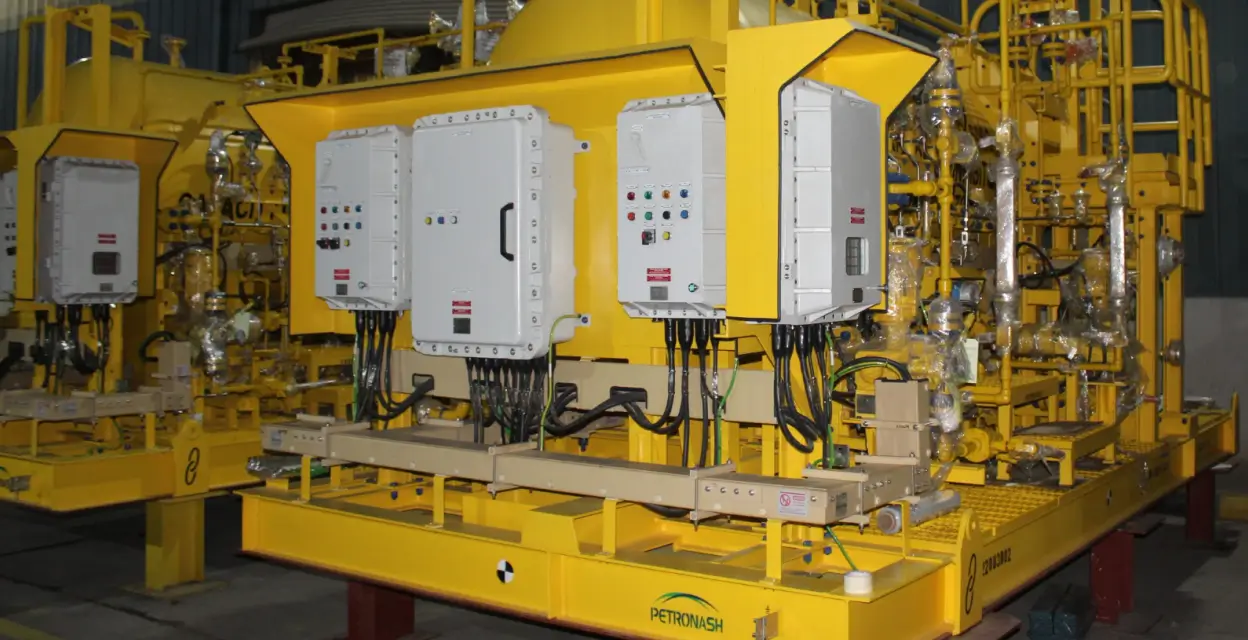Chemical injection systems play a critical role in optimizing oil production processes, enhancing efficiency, and ensuring the longevity of equipment. By introducing specialized chemicals into oil and gas flow streams or reservoirs, these systems help mitigate issues such as corrosion, scaling, and flow assurance. To maximize the effectiveness of chemical injection systems, it is essential to follow best practices that ensure safe, efficient, and cost-effective operations. This article outlines key best practices for using chemical injection systems effectively in oil production.
Understand the Chemical Injection Process
Before implementing a chemical injection system, it is crucial to understand the specific processes involved. Chemical injection typically involves the following steps:
- Chemical Selection
Choose the appropriate chemicals based on the specific challenges faced in the production Common chemicals include corrosion inhibitors, demulsifiers, and scale inhibitors. - Injection Points
Identify optimal injection points, such as wellheads or downhole locations, to ensure effective distribution of chemicals throughout the - Monitoring and Control
Implement monitoring systems to track chemical levels, flow rates, and pressures, allowing for real-time adjustments to maintain optimal
Optimize Chemical Dosing
Accurate dosing of chemicals is vital for maximizing effectiveness while minimizing costs. Over-injection can lead to increased operational expenses and potential damage to equipment, while under-injection may fail to address production challenges.
- Use Advanced Metering Technologies
Employ high-precision metering pumps and flow meters to ensure accurate dosing of chemicals. Technologies such as Coriolis flow meters can provide real-time data on flow rates and densities, allowing for precise control over chemical - Conduct Regular Calibration
Regularly calibrate metering equipment to maintain accuracy and This practice helps prevent dosing errors that could impact production efficiency.
Implement Robust Monitoring Systems
Effective monitoring is essential for maintaining the performance of chemical injection systems. By tracking key performance indicators (KPIs), operators can identify potential issues early and take corrective actions.
- Instrumentation and Control Panels
Integrate instrumentation to monitor critical parameters such as pressure, temperature, and flow Advanced control panels can provide real-time data and alerts for any anomalies. - Automated Shutdown Systems
Implement automated shutdown systems to prevent over-injection or equipment damage. These systems can be programmed to trigger alarms or shut down operations if predefined thresholds are
Ensure Safety and Compliance
Safety is paramount in chemical injection operations, especially when handling hazardous materials. Adhering to safety regulations and best practices can help protect personnel and the environment.
- Safety Shutdown Valves
Install safety shutdown valves to prevent chemical spills and ensure safe operation in hazardous environments. These valves can automatically close in case of a malfunction or - Training and Safety Protocols
Provide comprehensive training for personnel involved in chemical injection Establish clear safety protocols and emergency response plans to address potential incidents.
Regular Maintenance and Inspection
Regular maintenance and inspection of chemical injection systems are essential to ensure reliable performance and prevent downtime.
- Routine Inspections
Conduct routine inspections of all system components, including storage tanks, metering pumps, and Look for signs of wear, leaks, or corrosion that could compromise system integrity. - Preventive Maintenance
Implement a preventive maintenance schedule to address potential issues before they escalate. This practice can help reduce repair costs and minimize production interruptions.
Leverage Technology for Efficiency
Advancements in technology can enhance the efficiency and effectiveness of chemical injection systems.
- Remote Monitoring and Control
Utilize remote monitoring technologies to track system performance without the need for frequent field This capability allows operators to manage chemical injection processes more efficiently, especially in remote locations. - Data Analytics
Implement data analytics tools to analyze historical performance data and identify This information can inform decision-making and optimize chemical injection strategies.
Conclusion
Implementing best practices for chemical injection systems in oil production is essential for achieving optimal performance, enhancing safety, and reducing operational costs. By understanding the chemical injection process, optimizing dosing, implementing robust monitoring systems, ensuring safety and compliance, conducting regular maintenance, and leveraging technology, oil producers can maximize the benefits of chemical injection systems.
 Back To Blogs
Back To Blogs

